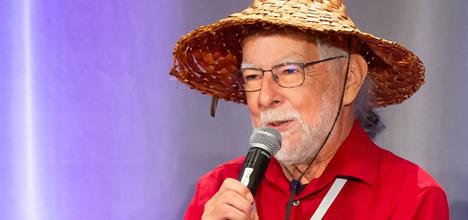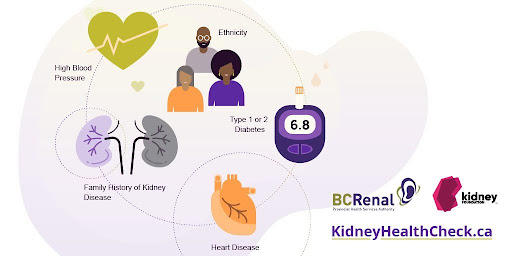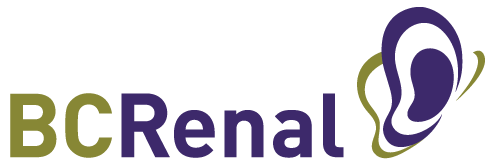
Chief Michael Recalma of the Qualicum First Nation knows first hand what it’s like to have his kidneys fail, to urgently need dialysis treatment, and to receive a kidney transplant. In 2018, after feeling like he’d had a mild flu for about two weeks, he went to see a community nurse at his local health centre. There, he learned he had extremely high blood pressure - a main risk factor for kidney disease - and that he needed to be treated right away.
Reflecting on advice he would share these days about kidney disease warning signs, he says he had an overall unwell feeling. He also says, “Pay attention to fatigue and changes in urinary function including output, colour and odor.”

In addition to high blood pressure, other main risk factors for kidney disease include diabetes, heart/circulation disease, ethnicity, and family history of kidney disease. For Kidney Health Month and World Kidney Day on March 14, BC Renal and The Kidney Foundation of Canada - BC & Yukon Branch are running our “Could you be the 1 in 10?” public awareness campaign. The campaign encourages everyone to take BC Renal’s free online Kidney Health Check self-assessment quiz that includes additional information about risk factors and lets you know if you should see a doctor.
“People can lose up to 80% of kidney function before they notice any symptoms, “says Gloria Freeborn, BC Renal director of strategic initiatives, education and development. “When kidney disease is diagnosed early, it can often be managed through changes in lifestyle and medication, avoiding kidney failure and the need for life-sustaining dialysis or a kidney transplant.”
As a leader in his community and following his experience with kidney disease, Chief Recalma has had invitations to speak with his fellow Qualicum band members and the general public. He’s taken some of those opportunities to share the importance of kidney health and overall well-being and says, “I would encourage everyone to have conversations with family and community about their kidney health.”
He adds that some of these conversations have led him to connect with others who have been on dialysis, received a kidney transplant, or donated a kidney as a living kidney donor.
In 2022, Chief Recalma received the gift of a kidney transplant from a living donor, relieving him of dialysis treatments that had been very tiring for him. The new kidney provided him with renewed health and energy, and he says he’s also made some changes to increase his overall wellness: “I have continued with the renal diet with a few modifications. Exercise, mental and spiritual well-being have played a very large role in boosting my overall wellness. I am blessed to live very close to a river and when I need to recharge myself I will take a walk along the river to enjoy what nature has to offer.”
To learn more about BC Renal’s kidney health campaigns, including a new 31-day #KidneyHealthChallenge for people who haven’t been diagnosed with kidney disease, see our
Kidney Health Month page.

